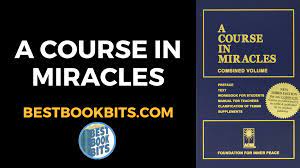Books, often referred to as the windows to the world, hold an unparalleled ability to transport us to different realms, expand our horizons, and ignite our imaginations. In an era dominated by digital content, the significance of a course in miracles remains steadfast as they serve as timeless repositories of knowledge, wisdom, and entertainment. Whether flipping through the pages of a classic novel, delving into the intricacies of a scientific thesis, or exploring the depths of fantasy worlds, books offer an experience unlike any other.
The allure of books lies not only in the information they convey but also in the journey they take us on. Each turn of a page unravels a new layer of understanding, exposing us to diverse perspectives and cultures that broaden our worldview. The magic of a well-written book lies in its ability to make us empathize with characters, ponder complex ideas, and challenge our preconceptions. This process of engagement nurtures critical thinking and encourages us to question, analyze, and ultimately form our own opinions.
Furthermore, books have an unparalleled role in fostering creativity and imagination. They provide the raw materials from which the mind can construct vibrant landscapes, vivid characters, and intricate plotlines. Unlike other forms of media that present visuals, books empower readers to paint their own mental pictures, an act that nurtures the creative faculties of the brain. This mental exercise not only enhances our imaginative capacities but also cultivates a deeper connection with the material, making the reading experience intensely personal.
From the earliest known forms of writing etched on clay tablets to the modern eBook formats, the medium may have evolved, but the essence of books remains constant. The tangible presence of a book, the sensation of its pages beneath one’s fingers, and the faint scent of ink all contribute to a multisensory experience that digital media struggles to replicate fully. This tactile interaction with the physical book fosters a sense of intimacy that enhances the bond between the reader and the content.
In a world inundated with fleeting digital content, the endurance of books as vessels of knowledge and culture is remarkable. The act of reading a book, whether in the quietude of a library or the comfort of one’s home, instills a sense of discipline and mindfulness. It encourages us to slow down, savor each word, and fully immerse ourselves in the narrative. This deliberate engagement contrasts with the fast-paced scrolling through online platforms, offering a reprieve and a chance to connect with ideas on a deeper level.


